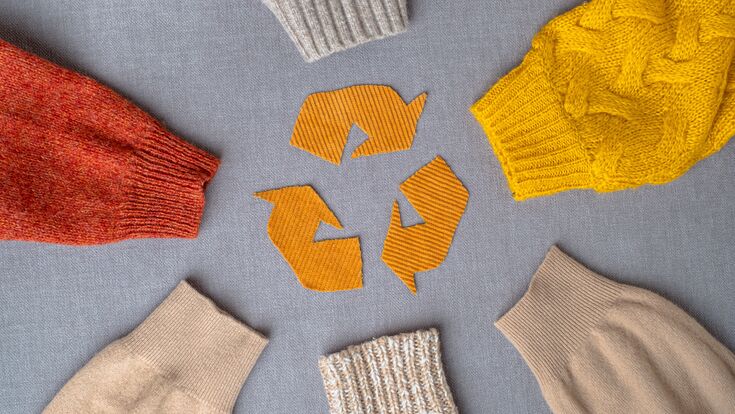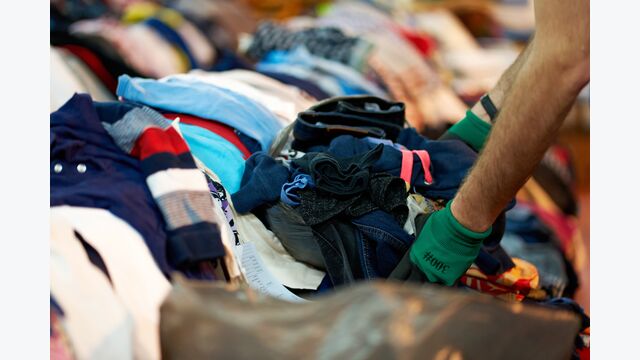Textile Recycling : Leading fashion group joins textile consortium to advance circularity of textiles

Globally, only 13% of textile waste is currently recycled and mainly in lower-quality applications such as padding, insulation or rags. The remaining 87% is destined for landfill or incineration. To improve and increase textile circularity Carbios a pioneer in the development and industrialization of biological technologies for reinventing the life cycle of plastics and textiles, together with textile companies On, Patagonia, PUMA, and Salomon founded a collaboration. The fiber-to-fiber consortium was now joined by PVH Corp.
“Partnering with Carbios and its consortium members demonstrates our ongoing commitment to including more circular materials in our collections," said Esther Verburg, EVP, Sustainable Business and Innovation, Tommy Hilfiger Global and PVH Europe. “We are excited to support the development of Carbios’ enzymatic recycling technology, leveraging new solutions that can help us to drive fashion forward for good.”
Fibre-to-fibre
Carbios has developed a unique and sustainable technology that uses highly selective enzymes to recycle mixed feedstocks, reducing the extensive sorting required by current thermomechanical recycling methods. For mixed fibre textile materials, Carbios' patented enzyme acts only on the PET polyester contained within. This innovative process produces recycled PET (r-PET) of the same quality as virgin PET, which can be used to make new textile fibres: a major breakthrough for the textile industry.
The consortium members are working together to test and improve Carbios' biological recycling technology on their own products. The ultimate goal is to demonstrate closed-loop, fibre-to-fibre recycling using Carbios' biorecycling process on an industrial scale, in support of the consortium members' ambitious sustainability commitments.
To work on improving textile recycling technologies, Consortium members will provide feedstock in the form of apparel, underwear, footwear and sportswear. In 2023, a new line for textile PET waste will be operational at the Carbios demonstration plant, notably through the LIFE Cycle of PET project co-funded by the European Union. This is in anticipation of future regulations, such as the separate collection of textile waste, which will be mandatory in Europe from 1 January 2025.
Want regular industry news in your inbox? Subscribe to our newsletters!
Circularity of textiles
Today's textile industry relies largely on non-renewable resources to produce fibres and fabrics, including recycled PET bottles for recycled polyester fibres. However, this resource is becoming scarce as PET bottles are used exclusively to make new bottles in the food and beverage industry. In a circular economy, the materials used to make textiles are sourced from recycled or renewable feedstocks produced through regenerative processes. In addition to providing feedstock for the demonstrator, the consortium members aim to create new products from Carbios' r-PET fibres produced using its biorecycling process

